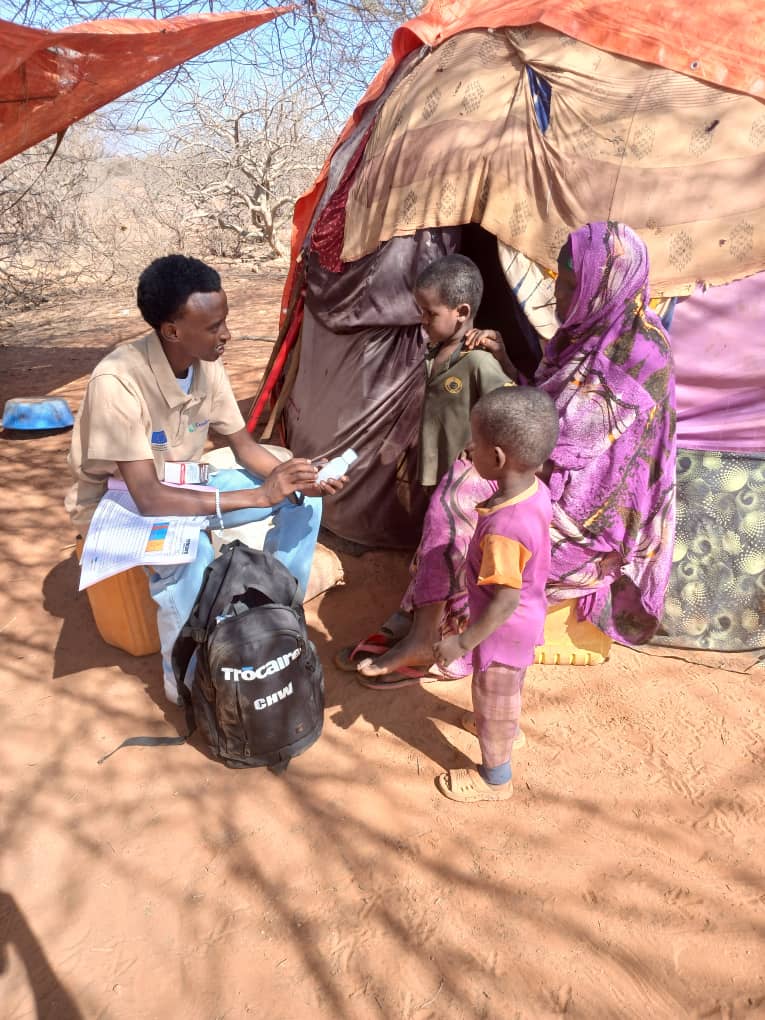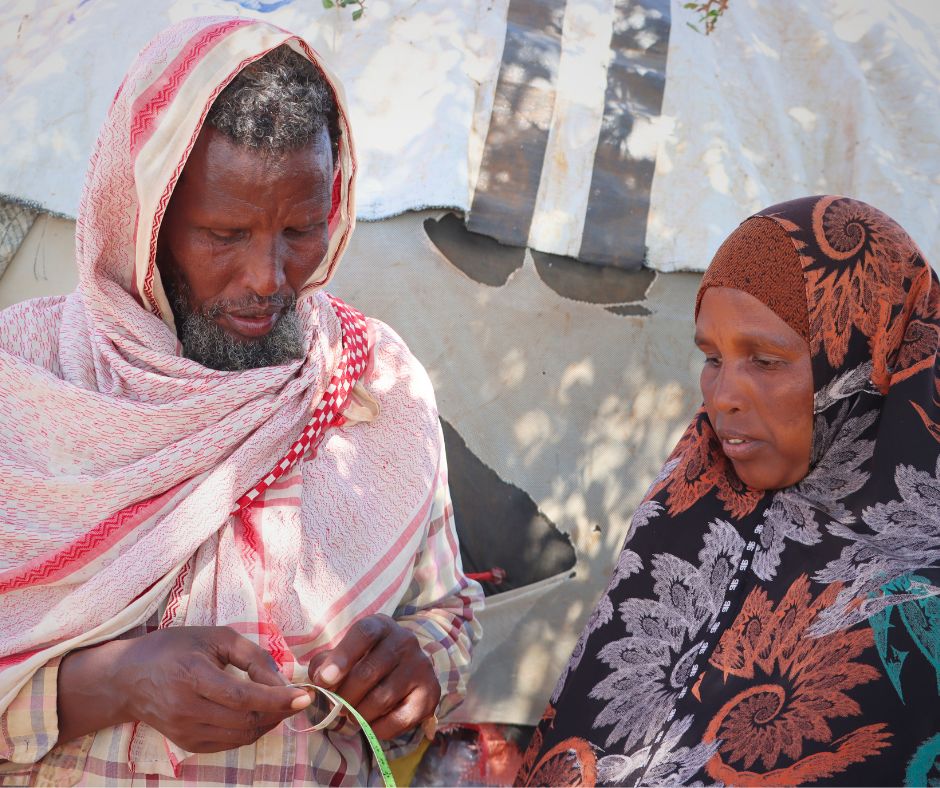In the El-Waak district along Somalia’s southern border, healthcare has long been a challenge due to distance and access. While some health facilities supported by humanitarian agencies existed in the area, they were often far from certain communities—making it especially difficult for families like Hawa’s to access timely care. In some cases, residents traveled to neighboring Kenya to seek treatment. The nearest reliable and well-equipped facility was over nine kilometers away. To get there, people faced language barriers, security checks, and lack of identification documentation. Many delayed care, while others resorted to traditional remedies out of fear of arrest.
For parents like Hawa, this situation meant making difficult choices. Her three-year-old son, Muhsin, once had to be taken across the border for treatment when he became seriously ill.
“We used to go across the border just to get medicine,” she says. “Now help is right here—and it’s free.”
That help arrived through improved coordination and support. Trocaire, a member of the Caafimaad Plus Consortium, began managing El-Waak District Hospital. With funding from EU Humanitarian Aid, Trocaire expanded its efforts to deliver integrated health, nutrition, WASH, and protection services across the district.
Since September 2023, more than 6,000 children in El-Waak have been treated for common illnesses such as malaria, pneumonia, and diarrhea through a combination of fixed health facilities, mobile outreach clinics, and trained community health workers. These frontline workers not only treat illnesses—they make home visits, refer urgent cases, and share key messages on nutrition, hygiene, and early signs of malnutrition, often reaching families before a crisis hits.
Muhsin was recently treated right at home. When a community health worker visited, he had a high fever, was coughing, and had lost his appetite. He was diagnosed with pneumonia and immediately started a three-day course of amoxicillin and paracetamol. Thanks to close follow-up, he made a full recovery.
“I was so relieved when they told me he was better,” Hawa says. “I’m grateful for the support we’re getting. It’s helping us keep our children healthy.”
Community health worker Ismail says attitudes are shifting.
“People used to suffer from treatable illnesses,” he says. “Now they trust the system because they can get care early—and without leaving home.”
Bringing care closer to remote communities like El-Waak is not just a convenience, it’s a lifeline. For too long, rural and border districts in Somalia have faced the highest rates of child mortality, maternal complications, and disease outbreaks—often with the fewest resources. Projects like Caafimaad Plus are helping close that gap.
The initiative strengthens Somalia’s health system by investing in frontline health workers, enhancing referral pathways, and fostering trust between communities and healthcare providers. It offers a model for long-term impact—not only for emergency response but for creating dependable, everyday health services.
For families like Hawa’s, the progress in El-Waak brings dignity, peace of mind, and a better chance to raise healthy children—without having to cross a border for basic care. It shows what’s possible when health services are available where people live, and when consistent support reaches even the most remote communities.







